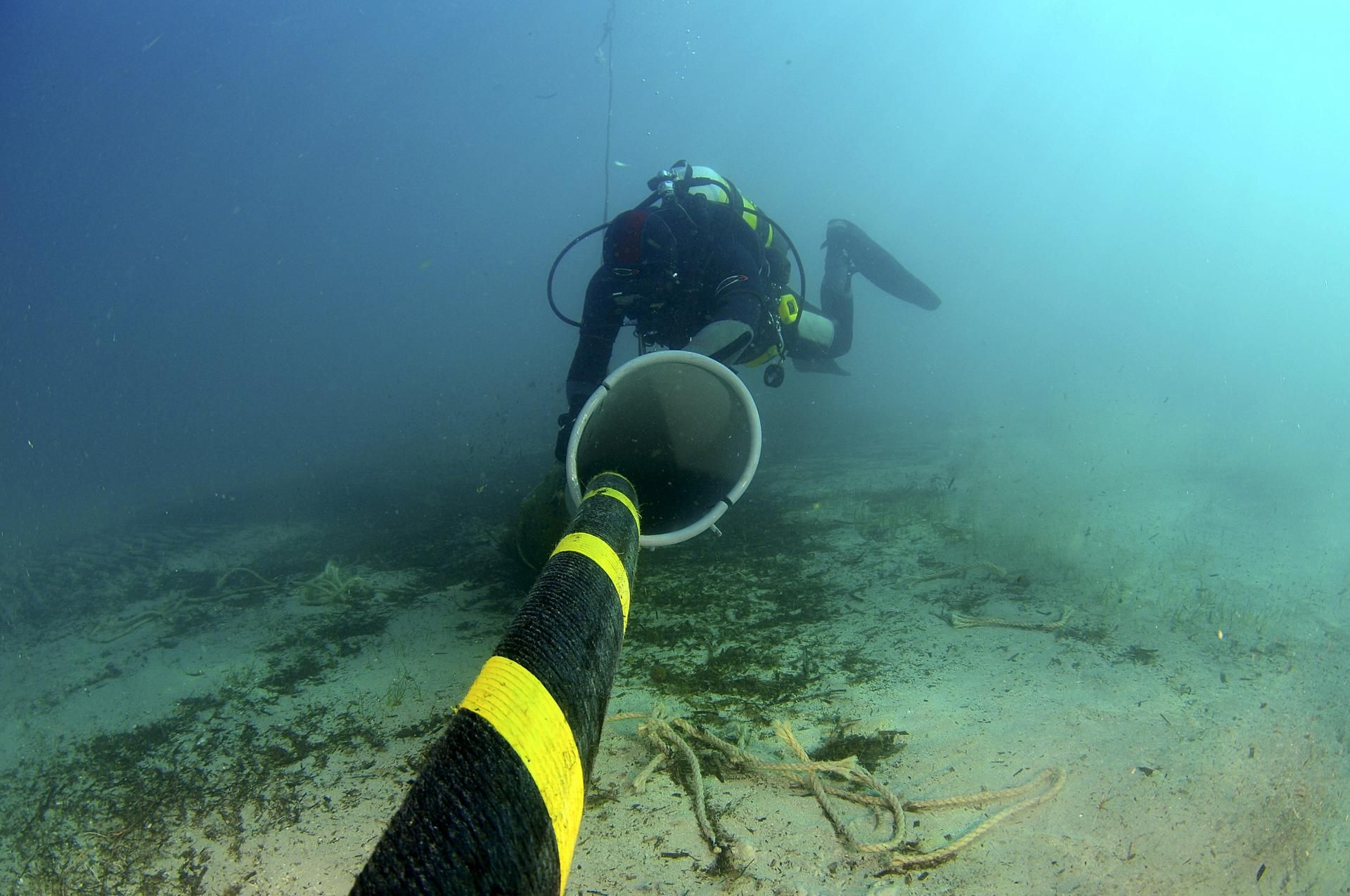Damage to underwater telecommunications cables in the Baltic

Berlin (EFE).- Authorities in Finland, Sweden and Lithuania are investigating the cause of the damage caused to two submarine telecommunications cables in the Baltic Sea, without ruling out that it could have been a possible deliberate act of sabotage, as That the German defense indicated. Minister Boris Pistorius.
This Tuesday, Pistorius described the damage caused to two cables between Finland and Germany and between Sweden and Lithuania, which occurred a day earlier, as a “hybrid action” and strongly rejected the possibility of a possible accident. Gave.
He said, “Nobody believes that these cables were accidentally cut and I also do not want to believe the version that it was the anchors who accidentally damaged these cables.”
Speaking upon his arrival at the European Union (EU) defense ministers meeting in Brussels, Pistorius referred to the threat posed by Russia, both military and hybrid, he said.
Also his cabinet colleague, Foreign Minister Annalena Baerbock, said “this cannot be a coincidence” and suggested it was an attempt at intimidation by Moscow, although Berlin has not yet reported any investigation being launched.

Research in Sweden and Finland
Finland’s National Bureau of Investigation (KRP) announced this Tuesday that it has launched a joint investigation with Sweden to determine the causes of the collapse of the Sea-Lion1 telecommunications cable, which connects the Nordic country to Germany.
It is a high capacity fiber optic cable that runs for 1,173 kilometers. The break occurred about 700 kilometers from Helsinki, southeast of the Swedish island of Åland and within Sweden’s exclusive economic zone.
The Finnish state-controlled operator, Siniya Oy, warned this Monday that it had suffered an outage that has caused data flows to stop.
The Finnish Prime Minister, Petteri Orpo, preferred to wait to make a statement until the investigation was completed, but acknowledged that “it is true that a lot of these incidents have happened in the Baltic”, where there was still one unsolved attack in 2022. Against the Russian Nord Stream 2.
Swedish authorities also reported that they had initiated preliminary proceedings for sabotage due to two cable breaks.
“Currently the crime classification is sabotage. “The preliminary investigation is ongoing at an early stage,” prosecutor Henrik Södermann said in a statement.

Doubts in Lithuania too
The damage to the cable between Lithuania and Sweden, operated by the Telia Lietuva company, was discovered on Sunday, although it was not revealed until the next day.
The head of the Lithuanian National Crisis Management Center (NKVC), Vilmantas Vitkauskas, said this Tuesday that the failure occurred at a point geographically remote from the damage caused to other cables, so a natural cause seems unlikely.
That’s why any human act, whether accidental or deliberate, seems plausible, said the head of the government agency, who added that the possibility of sabotage is also being investigated.
Regarding the impact of the breakdown, he said it reduced data transmission capacity by about a third, but traffic could be diverted to other underwater connections.
The Lithuanian State Prosecutor’s Office has also opened an investigation, media in that Baltic country reported on Tuesday, although a spokesperson declined to confirm to EFE what measures have been taken at this time.
Another similar case a year ago
The rupture of the Sea-Lion1 cable is the third rupture of major Finnish infrastructure in more than a year, following the damage to the BalticConnector underwater gas pipeline and a telecommunications cable between the Nordic country and Estonia in October 2023.
Although the investigation has not yet been completed, the most likely hypothesis is that the rupture was caused by the anchoring of the Chinese merchant ship Nyunyu Polar Bear, which was en route to the Russian city of Saint Petersburg, although it is unknown whether it was accidental. Was – as Beijing says – or deliberate.
Finnish media speculate that a Chinese ship may also be involved in this matter.
According to maritime traffic data, several ships operating in the damage zone had signals cut off at the time of the incidents, including the Chinese freighter Yi Peng 3, which had previously stopped in a Russian port.
